20 Things Preppers Need to Do in the New Year
As we approach the start of a new year, it’s a perfect time to review preparedness plans and take proactive steps to ensure you’re ready for any potential emergencies or disasters. Whether you’re new to prepping or have been on this journey for a while, here are 20 important things preppers need to do in the New Year. Don’t miss this opportunity to be more prepared than ever!
We’re all used to making New Year’s Resolutions once the New Year’s celebration activities are over. It’s always better to prepare for natural disasters and other emergency situations before disaster strikes. Let this post be your chance to do some brainstorming so you can make some necessary purchases and plans ahead of time.
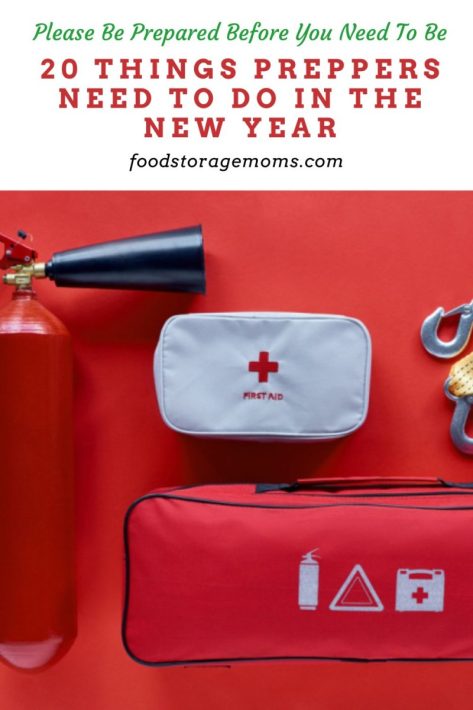
20 Things Preppers Need to Do in the New Year
1. Review and Update Your Emergency Plan
Start the year by reviewing your emergency plan and making any necessary updates. Ensure that every family member in your household is familiar with the plan and knows what to do in different scenarios. Emergency Preparedness-Make A Plan Bugging In What To Do
You can’t wait until next year to plan for a survival situation you’re likely to encounter in your location. Now is the time of the year to plan things out. Be aware of likely scenarios for where you live. Your location could be prone to hurricanes, tornadoes, wildfires, floods, or earthquakes.
2. Assess Your Stockpile
Take stock of your supplies and evaluate what needs to be replenished. Check the expiration dates of food, water, medications, and other essentials. Consider adding items that may be missing from your stockpile. What to Do With Your Old Stockpile of Food
It will also include making sure you have things like toilet paper, alternate cooking devices if the power goes out, ways to purify and filter water, options to do the laundry, and more.
3. Learn a New Skill
Expand your prepping knowledge by learning a new skill related to survival or self-sufficiency. It could be anything from first aid and navigation to gardening or basic car maintenance. This is one of the most important things preppers need to do in the New Year. 17 Ways to Become More Self-Sufficient
Survival skills can take many forms. It may include learning CPR, how to dress a wound, or applying a tourniquet.
4. Conduct a Home Security Audit
Assess the security of your home and make any necessary improvements. Install sturdy locks, reinforce doors and windows, and consider investing in a security system if you haven’t already. 20 Ways to Step Up Security Measures Around Your Property
There are dangerous individuals out there, especially when food supplies run low. After disasters, we always hear stories of looters who are looking for supplies so they can survive too. It becomes an obsession and they’ll do almost anything to get through the tough times. Don’t allow your family and property to be taken advantage of.
5. Create a Communications Plan
Establish a communication plan with your family and close friends in case traditional forms of communication are disrupted. Define meeting points and alternative communication methods such as walkie-talkies or ham radios. Communication Options for Your Family During a Disaster
If you have to evacuate, you want to be able to hear about traffic jams, new weather threats, and possible escape routes that are best to take. Staying informed and in touch with others is critical!
6. Build a Bug-Out Bag
Put together a well-equipped bug-out bag for each family member that contains essential items for a quick evacuation. Ensure you have enough supplies for each household member, including food, water, clothing, and important documents. 8 Must-Haves for Choosing the Perfect Bug Out Location
7. Practice Sheltering in Place
Conduct a drill where you practice sheltering in place. This will help you identify any weaknesses in your plan and ensure that you have the necessary supplies to stay safe and comfortable at home during an emergency. Pandemic: What You Need To Shelter In Place
There is an adage that states: “If you fail to plan, you’re planning to fail.” You may have a great plan, but you need to practice the necessary steps to carry the plan out to make sure there aren’t any “holes” to be considered.
8. Develop a Water Storage System
Create a water storage system to store an adequate supply of clean water for your household. Consider using water barrels or large containers with proper filtration systems. Water Storage: How Much Do You Really Need?
We have often been told to have one gallon of water per person per day. I have always told my readers to try to have consumable water in the amount of four gallons of water per person per day. That way, you’ll have enough to stay hydrated, cook meals, do limited laundry, and perform some personal hygiene.
As a Boy Scout, Mark learned how to use water purification tablets in case he needed to purify water while hiking or camping. As a family, you’ll need more capacity than he learned about. A good water filter system with different kinds of filters is important. I like products from Big Berkey and PortaWell. Each has its unique approach and related pros and cons. It isn’t enough just to have the water, it needs to be safe enough for humans and pets to drink.
9. Establish an Off-Grid Power Solution
Invest in alternative power sources such as solar power panels, generators, or portable power banks. These will come in handy during power outages or when living off the grid becomes necessary. 7 Ways To Cook When You Lose Power
I have some units from Goal Zero and their Yeti power systems. You’ll have to decide how many devices you want to keep running and at what cost you can afford. Good power backup systems should be in your plans to run cell phones and computers, at a minimum.
10. Learn Basic Self-Defense Techniques
Take a self-defense class or learn basic self-defense techniques to protect yourself and your loved ones in challenging situations. Knowledge of self-defense can boost your confidence and help you stay safe. Things To Do To Not Get Scared as a Prepper
11. Create an Emergency Binder
Compile important documents such as identification papers, insurance policies, medical records, and contact information in an emergency binder. Keep it in a secure location that is easily accessible. 10 Best Home Defense Options in an Emergency
I have a great binder available on my website for free. Check it out and download it if you feel it can help support your emergency plan outline.
12. Start a Garden
Begin cultivating a garden, even if it’s just a small one on your balcony or patio. Growing your food can provide fresh produce during emergencies and increase your self-sufficiency. 8 Reasons Why Your Garden May Be Struggling
There is nothing quite like teaching your kids how to grow and cultivate food. They can watch the process and feel like they are helping to protect the family during challenging times.
13. Build Community Connections
Connect with like-minded individuals in your community who share your interest in preparedness. Join local prepper groups or attend workshops and events to exchange knowledge and resources. Is Your Neighborhood Prepared?
We organized a group in our old neighborhood that wanted to take a Community Emergency Response Team (CERT) class. These like-minded people enjoyed the time together and felt they learned several skills that can come in handy. Check with your local fire department to see what it takes to put one together.
14. Conduct Fire Drills
Practice fire drills in your home to ensure everyone knows how to respond quickly and safely in the event of a fire. Identify escape routes and install smoke detectors if you don’t already have them. Fire Extinguishers: More Important than a Gun?
Those smoke, radon, and carbon monoxide units aren’t going to work if the power goes out and the batteries are dead. We always replace the batteries on New Year’s Day every year. Have a schedule in place so your family can stay protected.
15. Expand Your First Aid Skills
Enroll in a first aid course or refresh your knowledge of basic first aid techniques. Having the ability to provide medical assistance during emergencies can be life-saving. First Aid Kits-What You Need To Survive
Having first aid kits is so important. But equally important is knowing how to use all the supplies included in the kit. Take a class if you need to learn or update your first aid skills.
16. Learn to Preserve Food
Explore various methods of food preservation such as canning, dehydrating, and fermenting. This will help you extend the shelf life of perishable items and reduce dependence on refrigeration. Frugal Way To Preserve Your Food Today For Tomorrow
I’ve written dozens of posts relating to food preservation and storage. Checkout the links in my archive above to glean a ton of helpful hints and guidelines.
17. Stay Informed
Stay up-to-date with current events, weather forecasts, and any potential threats in your area. Utilize reliable news sources and emergency alert systems to stay informed about local and global developments. Things To Do To Not Get Scared as a Prepper
18. Conduct Home Fire Safety Checks
Regularly inspect your home for potential fire hazards. Check electrical systems, heating appliances, and smoke detectors. Keep fire extinguishers in accessible locations and ensure they are in good working condition. 20 Reasons to Have a Fire Extinguisher On Hand
Make sure that appliances in your home, like furnaces and water heaters, are cleaned and serviced annually. Also, be sure to keep the areas around these units free from clutter and debris that may be flammable.
19. Practice Emergency Drills with Children
Teach your children how to respond to emergencies through age-appropriate drills. This will help them understand the importance of preparedness and ensure their safety. Home Economic Skills You Should Teach Your Kids
20. Evaluate Your Financial Preparedness
Assess your financial situation and develop a plan to build an emergency fund. Financial stability can provide a safety net during challenging times and help you recover quickly. How to Find Time to Prep For Emergencies
Being properly prepared can take some time and financial support. Don’t try to do too much all at once. Plan, purchase what you can afford, and keep things up to date.
More Tips
- Emergency Preparedness in the New Year
- Prepping Appropriately for Emergency Preparedness in Every Season
- How to Start Prepping with No Money
Final Word
What are some things you think preppers need to do in the New Year? As the new year begins, take the opportunity to reflect on your prepping goals and make a commitment to enhance your emergency preparedness for whatever may come your way this year. Follow these 20 tips and you’ll be well-equipped to face any challenges that are likely to take place during this year and beyond. Happy New Year! May God Bless this World, Linda
Copyright Images: Emergency Binder Plan Depositphotos_656729114_S by Designer491, Fire Extinguisher, and Emergency Supplies Depositphotos_205796388_S by VadimVasenin

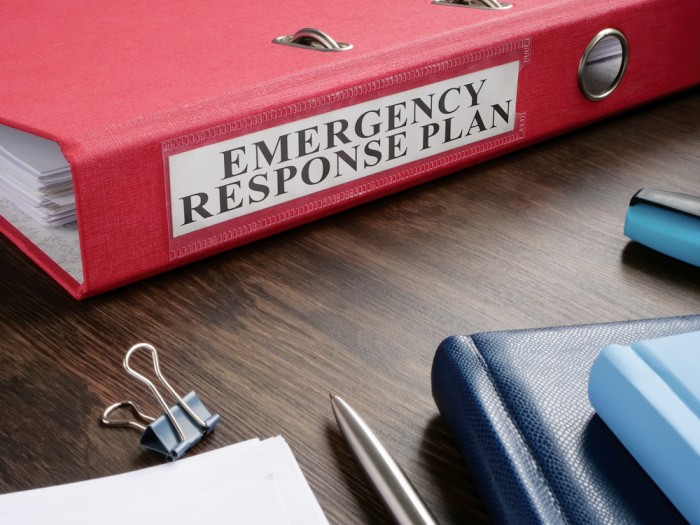

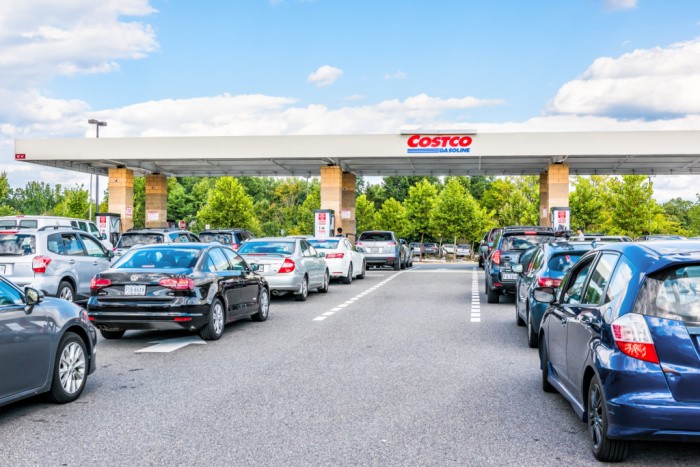
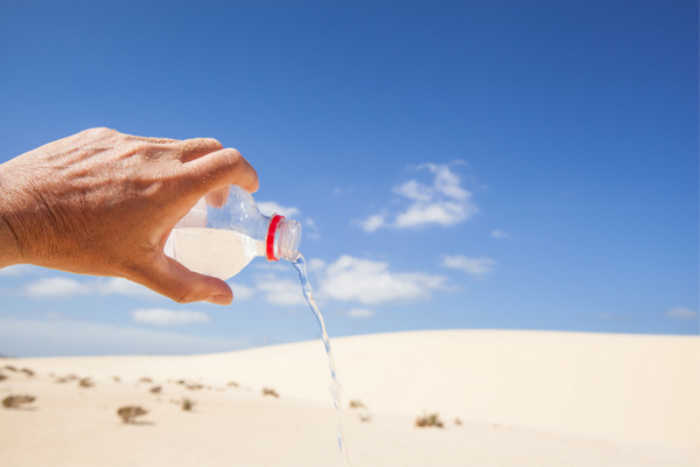
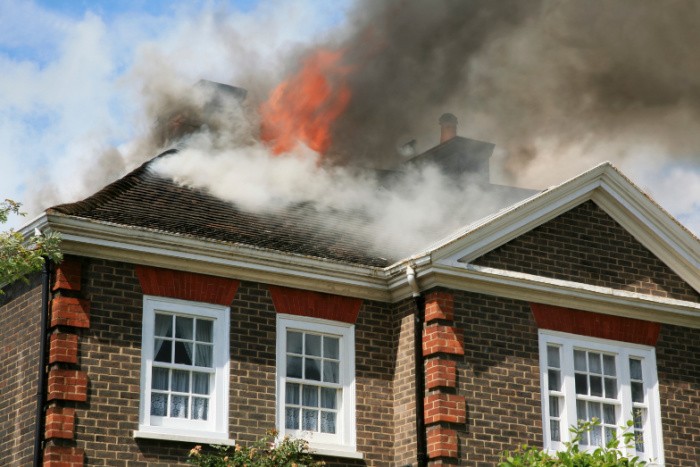

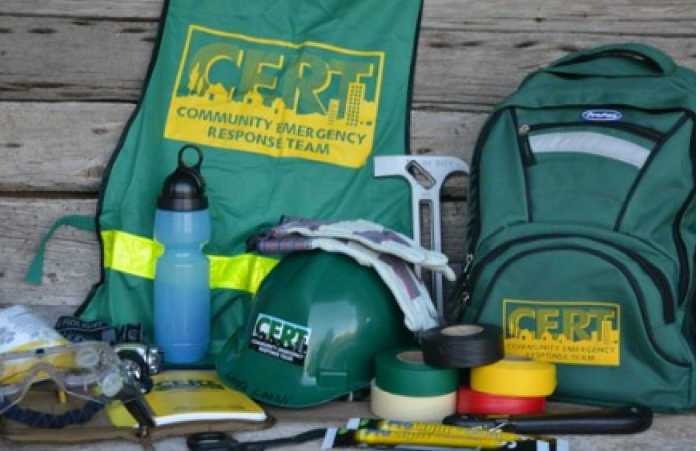
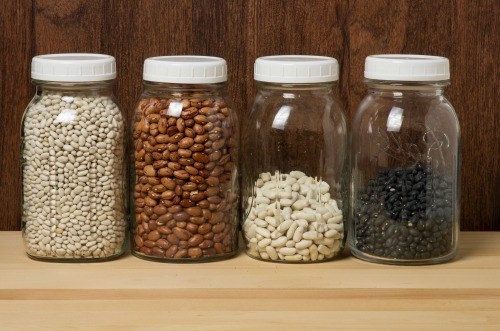
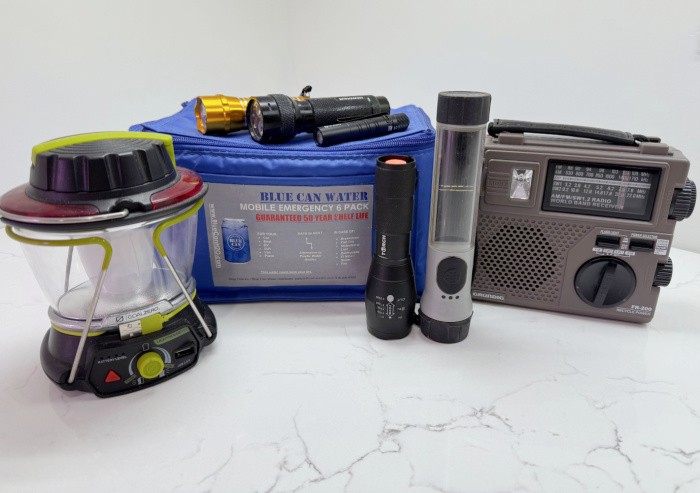
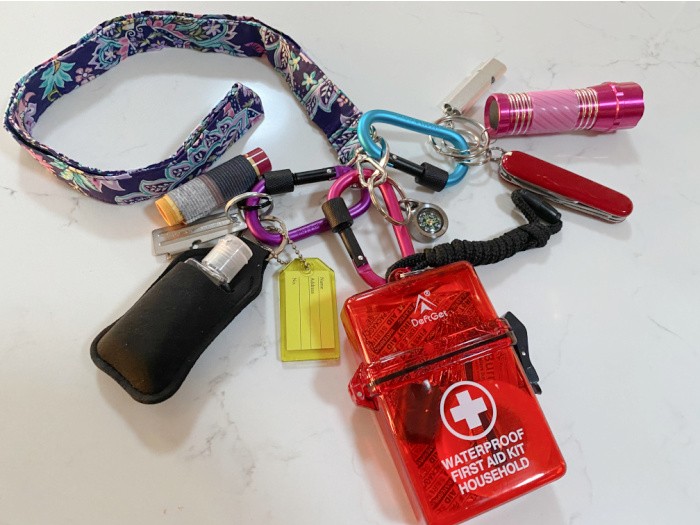











New years is when I change out batteries on weapons. Optics, lights, scopes, lasers, dots and night vision. Many things I have are rechargeable but those that aren’t get changed on the holiday timeframe.
Hi Matt, I have always made January 1st of each new year my battery change date! Great reminder on all the other itmes you listed. Linda
I’m with Matt – make a plan to change batteries in things that are crucial! For example, my pistol safe has 2 ways to open it – key and battery (with a code). If the batteries are down, I then have to fumble with the key! In a crucial situation, I want fast access to my pistol. So, I change the batteries in my pistol safe 2X a year – when we change time in the spring and fall.
When reassessing fire safety, make sure the extinguisher(s) are fully charged; change the batteries in the fire/smoke alarms (or create your plan for this); and get a fire blanket! Fire blankets are useful in the garage, kitchen, near your wood stove – anywhere you have open flames. These typically are stored in a pouch attached to the wall. I have one by my range since it is gas, as well as near my heating stove which is also gas. But, even if you have an electric stove, a fire can start, especially if you are frying things. These blankets can be thrown over the fire to put it out quickly. If you get one of these blankets, be aware that they are full of fiberglass like insulation. Don’t take it out of the pouch unless you are dealing with a fire (got that from several reviews). But in a fire, I would rather deal with the issue of fiberglass than burns or loss of home.
One thing I do at the start of each year or during my spring cleaning!! is to take all food items out of a cupboard, check the best by dates and reorganize so I am using the oldest food items first. I also clean the cupboards so I don’t have any critters!! This year, I don’t need to do this since I just moved a few months ago and organized it pretty well when I got settled.
HI Leanne, great tips, my friend! It is so nice you have moved into your new place and can take a mini breather until the time is right to reorganize stuff. I didn’t know that the fire blankets left fiberglass after using. Good to know, I will have to read the reviews now as well. Thank you, Linda
Top notch article, Linda. Love the fire blanket suggestion from Leanne and Matt’s battery changing schedule. For my skills addition I’m learning how to bake breads in my Sun Oven. I’m expanding my rainwater catchment system (which would be great if it would EVER rain). More importantly, my MAG just added new members with highly productive wells only two houses from me and they’ve agreed to supply us with water if the need arises. They have an off grid solar/battery power system for the well. I have whole home solar for my house so I told them if they get some batteries I’ll charge them so they’ll be able to continue to have power if the grid fails in a way that doesn’t take my solar system down. Also, I told them if need arises they can use one of my portable solar generators. Mutual aid is the name of the game in tough times.
HI Ray, oh my gosh, you can bake bread in a Sun Oven and it never burns. Once I forgot my bread baking for like an hour (because it was outside and I went to visit a neighbor)! LOL! No problem, nothing burns in the Sun Oven that I have tried. Boy, you have an awesome deal going for you and the families with water and power around you. LOVE THIS! Linda
One thing I do on New Year’s Day is to assess all the over the counter medicines we have, pull all the expired items and make a list of any new items we need. The list of things since 2020 has expanded to include testing supplies for COVID plus personal protection gear and masks.
Hi Topaz, I love hearing this! It’s critical we make a plan to rotate, restock, and toss. I agree I have added some new things to me stash this year. Linda